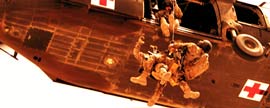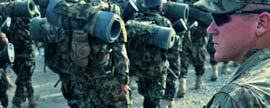Adultery is a crime punishable under Article 134, UCMJ. There are three elements that must be met to prove adultery existed. They are:
(1) That the accused wrongfully had sexual intercourse with a certain person;
(2) That, at the time, the accused or the other person was married to someone else; and
(3) That, under the circumstances, the conduct of the accused was to the prejudice of good order and discipline in the armed forces or was of a nature to bring discredit upon the armed forces.
The first element is the hardest to prove. The reason being is that the physical act of intercourse has to be proven. Unless there is a video, credible witnesses of the couple in the act, or some other concrete evidence, a confession by one of the two parties is normally the only way to prove adultery. This does happen on occasion, but normally neither party will confess.
The second element is that the offending Soldier is either married or he/she knows the other person was married. If the Soldier legitimately did not know the other person was married, then adultery did not occur.
The third element is the easiest of the three. The Commander has to determine that the conduct was prejudicial to good order and discipline. The fact that the Soldier was having an affair with another Soldier’s spouse meets that criteria if it is known by other Soldiers in the unit.
Even if intercourse can not be proven, then there are other actions that can be taken. The Soldier who’s wife is having the affair can approach the command with their concerns. If the 1SG/Commander determine their concerns are legitimate, then the commander can counsel the offending Soldier on inappropriate relationships and give the Soldier a no-contact order for the other Soldier’s spouse. Should the offending Soldier violate the no-contact order that Soldier can be punished under Article 90, UCMJ for willfully disobeying a superior commissioned officer.
In any event, if the offending Soldier is spoken to about the situation, who ever counsels him/her should ensure the Soldier’s rights are not violated and he/she is read their rights using DA Form 3881, Right Advisement. If this step is skipped, any information/confession the Soldier may provide could be thrown out as evidence for UCMJ or courts-martial proceedings.
I hope you found this information useful.
“The views presented by the author are his own and do not necessarily represent the views of the DoD or its Components.”
Disclaimer: I am not an attorney and any views presented are my own and are not to be
interpreted as legal advice. Furthermore, my views do not necessarily
represent the views of DoD or its Components.















Comments
Stephen Ryan
Adultery is a crime not only in the civilian world, but also in the military. It is a crime because its nature violates the military pillars of good order and discipline. In addition, it damages the reputation, reputation and competence of the service.
Stephen Ryan
Worth article! I just want to say thank you for sharing.
Stephen Ryan
There are two options to report adultery in the military. The first is to ring up the accused’s commander to report. You can reach out to the Family Readiness Officer for the commander’s contact information. The second way is file a petition for divorce. This is a public record document, so when you follow through with all of the processing, you will be able to officially “call out” your spouse having an affair while he or she is supposed to be serving the country.